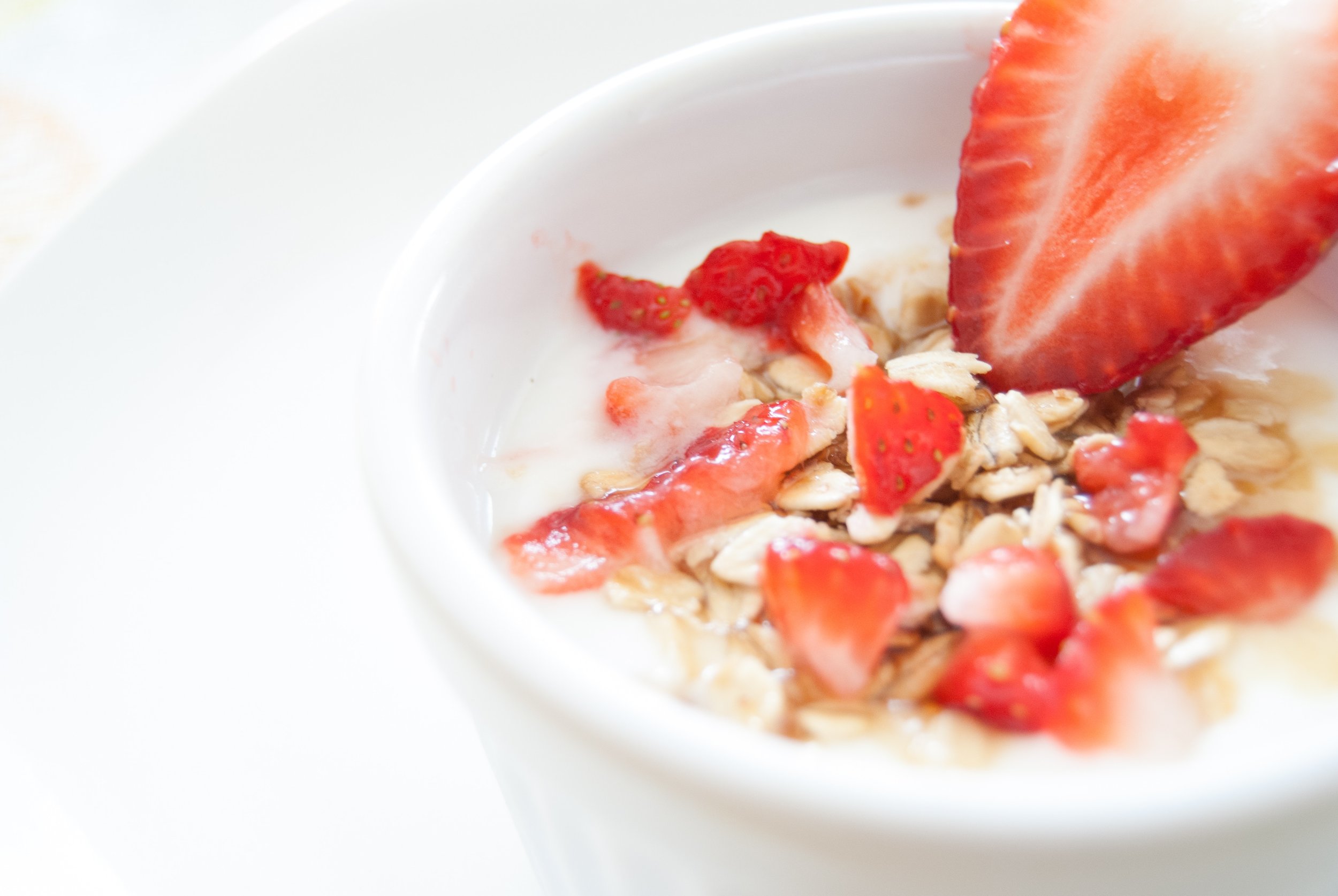Should I Take a Probiotic?
/You asked me to cover probiotics. And sure, I know about probiotics. But instead of listening to me, I decided to reach out to a true, leading expert in probiotics. I'm proud to call Desiree Nielsen a friend. And, I can tell you that probiotics and gut health are her jams. She's who I turn to for keeping up on this topic that the scientific community is rapidly learning about. So, I wanted to share her directly with you. Just like me, she gives you the real goods. Enjoy this interview! And, if you want more of Desiree, check out her show Urban Vegetarian playing on Gusto TV!
Should Parents Be Giving Kids Probiotics?
If a child was born naturally and breastfed, eats a healthy diet and has no health issues, they may not need a probiotic daily. Of course, probiotics are a great choice when the time is right: the literature shows that probiotics may be helpful during cold and flu season to prevent respiratory infection or to prevent traveller’s diarrhea.
In addition, there are certain health concerns that are a clear indication for the use of probiotics daily such as colic, infectious diarrhea or tummy troubles like reflux or irritable bowel syndrome.
Should Us Adults Take Probiotics?
I always tend to err on the light side of supplementation but as adults, there are many reasons why a probiotic may be an excellent idea. Any chronic digestive or inflammatory concern, from IBS to eczema, is worth a three month trial of a clinical strength probiotic to assess improvement. If a probiotic works, you will feel it. I cannot tell you how often I have talked to someone who has been taking a probiotic for years with no result and when they make the right switch, they are shocked by how much better they feel. They can be taken therapeutically and discontinued when you improve…but for those with chronic concerns, I recommend continuing daily as part of lifestyle management.
Probiotics are also helpful on an 'as needed' basis for everything from recovering from food poisoning, prevention of side effects from antibiotics use and as a boost during cold and flu season. They are a great, natural remedy in the wellness toolkit.
For those who tend towards an ‘insurance’ mindset in supplementation, a small daily dose of an effective probiotic certainly doesn’t hurt and you may find an improvement in your day-to-day wellbeing.
What is the Difference Between Prebiotics and Probiotics?
Probiotics are live microorganisms that are part of the natural human microflora…and prebiotics help them thrive. Not too long ago, we would have said that prebiotics are non-digestible carbohydrates such as inulin. The low FODMAP diet for IBS works by drastically reducing these prebiotic compounds to alter fermentation in the gut.
However, the definition of a prebiotic is changing and it is thought that a whole host of compounds, from plant polyphenols to even the diabetes medication metformin, may help boost the growth of beneficial microbes.
Can We Get Probiotics from Fermented Foods, e.g. Yogurt? Or, Do We Need to Take Them as a Supplement?
Fermented foods are produced thanks to beneficial microbes…but not all fermented foods may contain truly probiotic microbes. This takes a bit of explanation: the definition of a probiotic is ‘a live microorganism, which when administered in adequate amounts, confers a health benefit on the host.”
So the issue with fermented foods is that in the fermentation, many of the microbes may die or there might not be sufficient amounts to actually have an effect. The research on fermented foods is surprisingly spotty, with kimchi and yogurt being two of the standouts. But the average yogurt contains about 1 billion live bacteria at manufacture (which may not be alive when you eat them) whereas most supplemental probiotics are in the tens of billions.
Eat fermented foods daily as part of a healthy diet…take a supplement when you need extra help.
What Should Someone Look for in a Supplement? There Are so Many Available, How Do You Choose?
It’s a tough call; in my mind, the only probiotics that someone should consider are those with high level evidence to support their use. They are very few in number and you can find them on a very helpful website called www.probioticchart.ca - choose one of the brands with level 1 or 2 evidence. Then, the decision becomes a lot easier. We can spend so much money on supplements but if they aren’t effective, we are better off spending our money on healthy food!
In general, good quality probiotics have enteric coated capsules (with a couple of exceptions for fresh or powdered formulas) with a minimum of 10 billion live active cells, guaranteed to a clearly marked expiry date.
Who is Desiree Nielsen? Bio:
Desiree Nielsen is a dietitian based in Vancouver, Canada. She is the author of Un-Junk Your Diet: How to shop, cook and eat to fight inflammation and feel better, forever! and the host of Urban Vegetarian, a cooking show on Gusto TV. Passionate about integrative therapeutic approaches to nutrition, Desiree maintains a nutrition practice, with a focus on digestive health, plant-based diets and anti-inflammatory nutrition. Her new app, MyHealthyGut is an evidence-based resource for those looking to improve their digestive health.
Love this post?
Pin it!
Save this post for later or share it with your friends and family on Pinterest.
Check out more of Kristen’s pins here.





